Bacterial damage to the vessel wall, leaking blood vessels, and vasodilation d. Let us have a look at your work and suggest how to improve it!
Which Of The Following Most Accurately Describes Septic Shock. Which of the following most accurately describes septic shock? Bacterial damage to the vessel wall, leaking blood vessels, and vasodilation d. Bacterial infection of the nervous system with widespread vasodilation b. False, bleeding is not the most common cause.
 Sepsis And Septic Shock: The Sofa Score (Qsofa) And Treatments From ebmedicine.net
Sepsis And Septic Shock: The Sofa Score (Qsofa) And Treatments From ebmedicine.net
Related Post Sepsis And Septic Shock: The Sofa Score (Qsofa) And Treatments :
Viral infection of the blood vessels, vascular damage, and vasoconstriction b. Bacterial infection of the nervous system with widespread vasodilation b. The result of an inadequate amount of fluid or volume in the circulatory system. A) bacterial infection of the nervous system with widespread vasodilation b) widespread vasoconstriction and plasma loss due to a severe viral infection c) bacterial damage to the vessel wall, leaking blood vessels, and vasodilation d) viral infection of the blood vessels, vascular.
His blood pressure is 78/50 mm hg.
The result of an inadequate amount of fluid or volume in the circulatory system. Bacterial infection of the nervous system with widespread vasodilation b. An infectious agent in the body multiplies very rapidly, overwhelming the body�s natural immune response. Shock occurs when oxygen and nutrients cannot get to the body�s cells. Viral infection of the blood vessels, vascular damage, and. Bacterial damage to the vessel wall, leaking blood vessels, and vasodilation d.
 Source: ebmedicine.net
Source: ebmedicine.net
Bacterial infection of the nervous system with widespread vasodilation b. Widespread vasoconstriction and plasma loss due to a severe viral infection c. Which assessment finding is most important for the nurse to report to the health care provider?
 Source: journal.chestnet.org
Source: journal.chestnet.org
Temporary, widespread vasodilation and syncope caused by a sudden nervous system reaction most accurately describes : Bleeding is the most common cause of cardiogenic shock following an injury. Bacterial infection of the nervous system with widespread vasodilation b.
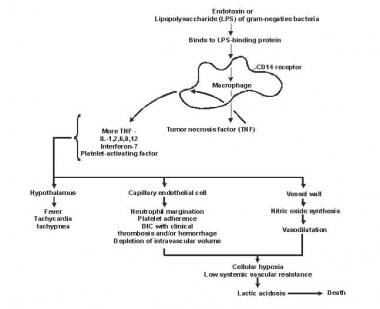 Source: emedicine.medscape.com
Source: emedicine.medscape.com
Which of the following most accurately describes septic shock? Widespread vasoconstriction and plasma loss due to a severe viral infection c. A bacterial damage to the vessel wall, leaking blood vessels, and vasodilation which of the following injuries would most likely cause obstructive shock?
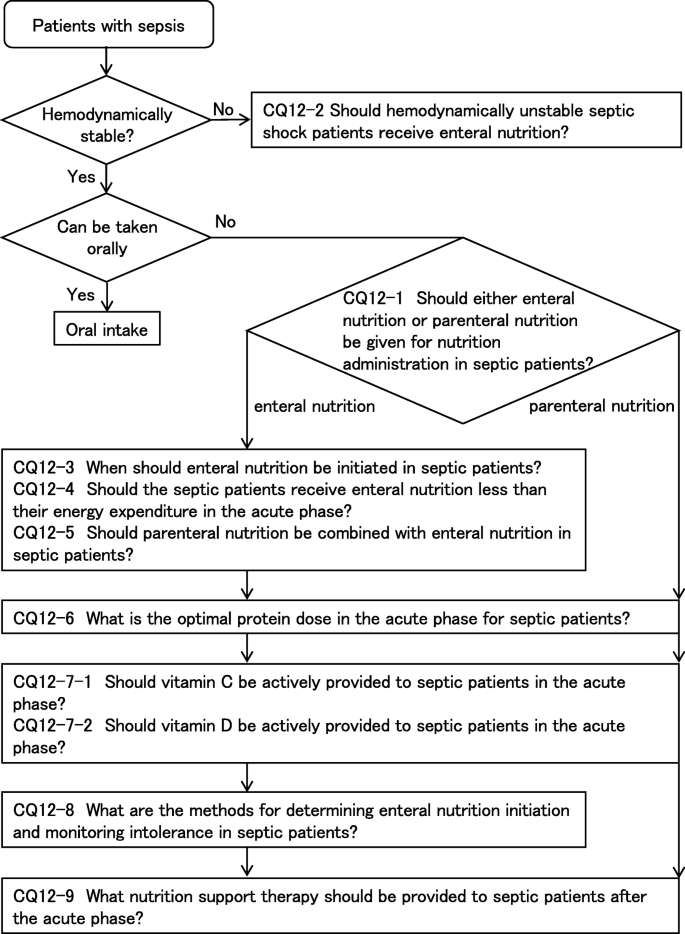 Source: jintensivecare.biomedcentral.com
Source: jintensivecare.biomedcentral.com
Which of the following most accurately describes the pathophysiology of sepsis? Blood vessel leakage, dilation, and severe volume loss. Which assessment finding is most important for the nurse to report to the health care provider?
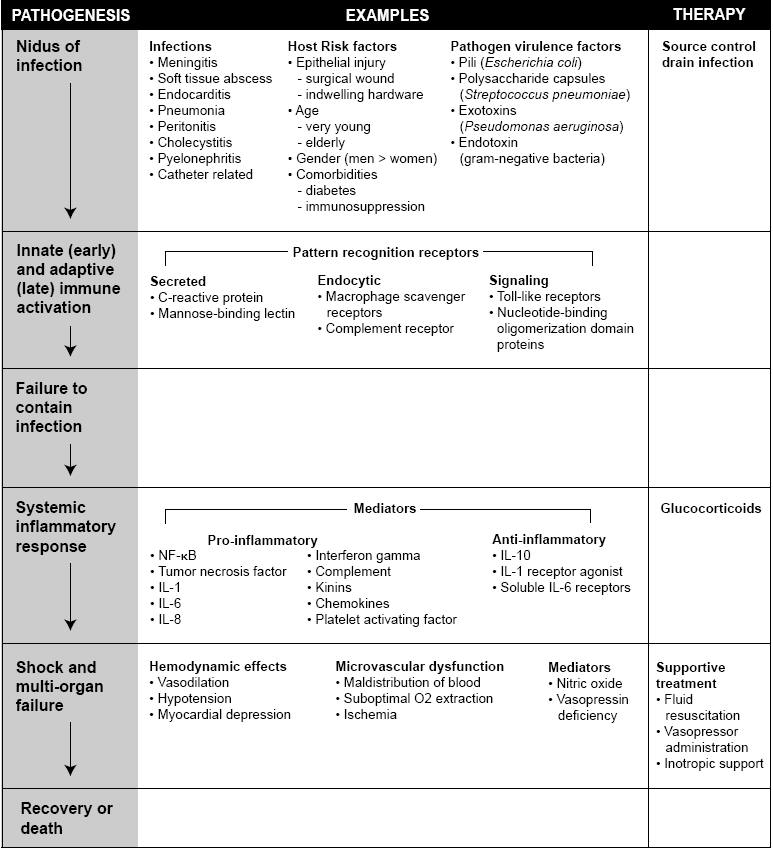 Source: antimicrobe.org
Source: antimicrobe.org
Which of the following most accurately describes septic shock? Accessing this course requires a login. Red blood cells incorrect b.
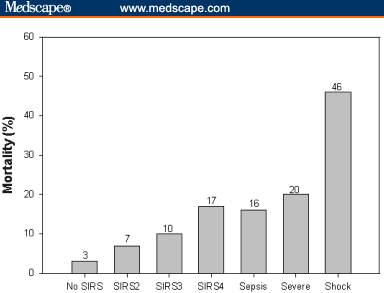 Source: medscape.org
Source: medscape.org
Bacterial damage to the vessel wall, leaking blood vessels, and vasodilation the primary waste product of aerobic metabolism is: Which of the following most accurately describes septic shock? Bacterial infection of the nervous system with widespread vasodilation b.

Bacterial damage to the vessel wall, leaking blood vessels, and vasodilation Apply direct pressure to the wound. The nurse is caring for a patient who has septic shock.
 Source: ebmedicine.net
Source: ebmedicine.net
Shock exam ), ) login. Platelets c.plasma 17 which of the following most accurately describes septic shock? Temporary, widespread vasodilation and syncope caused by a sudden nervous system reaction most accurately describes:
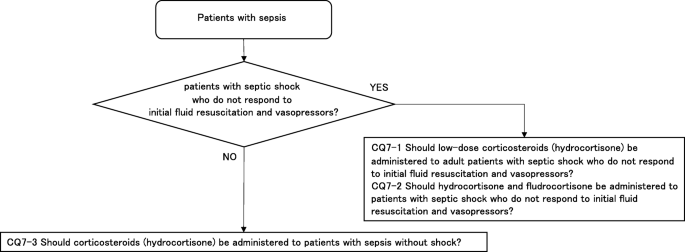 Source: jintensivecare.biomedcentral.com
Source: jintensivecare.biomedcentral.com
Which of the following most accurately describes septic shock? Clinical signs of compensated shock include all of the following, except: Apply direct pressure to the wound.

Hypovolemic shock caused by severe burns is the result of a loss of: Which of the following most accurately describes septic shock? Temporary, widespread vasodilation and syncope caused by a sudden nervous system reaction most accurately describes:
 Source: uptodate.com
Source: uptodate.com
Which of the following most accurately describes septic shock? Which of the following most accurately describes septic shock? His blood pressure is 78/50 mm hg.

You respond to a residence for a patient with a severe leg injury following an accident with a chainsaw. You respond to a residence for a patient with a severe leg injury following an accident with a chainsaw. 1 bacterial infection of the nervous system with widespread vasodilation 2 widespread vasoconstriction and plasma loss due to a severe viral infection 3 bacterial damage to.
 Source: kidneymedicinejournal.org
Source: kidneymedicinejournal.org
Bacterial infection of the nervous system with widespread vasodilation b. Bacterial damage to the vessel wall, leaking blood vessels, and vasodilation. Bacterial infection of the nervous system with widespread vasodilation c.
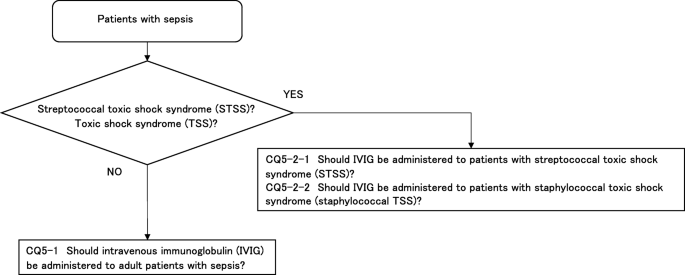 Source: jintensivecare.biomedcentral.com
Source: jintensivecare.biomedcentral.com
Bacterial infection of the nervous system with widespread vasodilation b. Nood pressure 92/56 mm hg skin cool and clammy oxygen saturation 92% heart rate 119 beats/min. Which of the following most accurately describes septic shock?
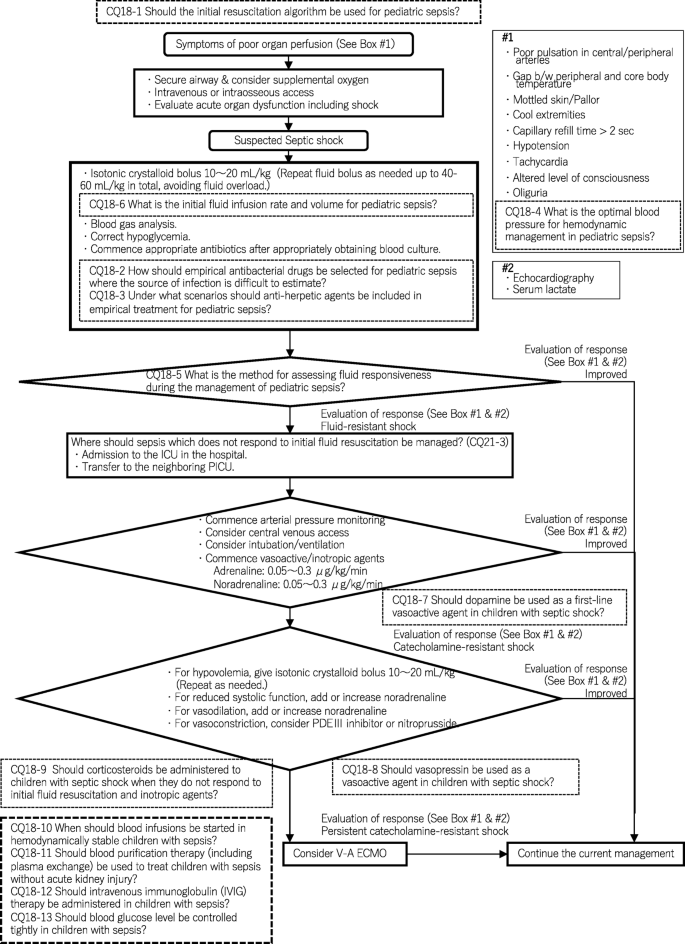 Source: jintensivecare.biomedcentral.com
Source: jintensivecare.biomedcentral.com
What most accurately describes septic shock? More than one type of infectious agent invades the body, limiting the immune system�s response to each agent. His blood pressure is 78/50 mm hg.
 Source: slideplayer.com
Source: slideplayer.com
Widespread vasoconstriction and plasma loss due to a severe viral infection Which of the following most accurately describes septic shock? Widespread vasoconstriction and plasma loss due to a severe viral infection
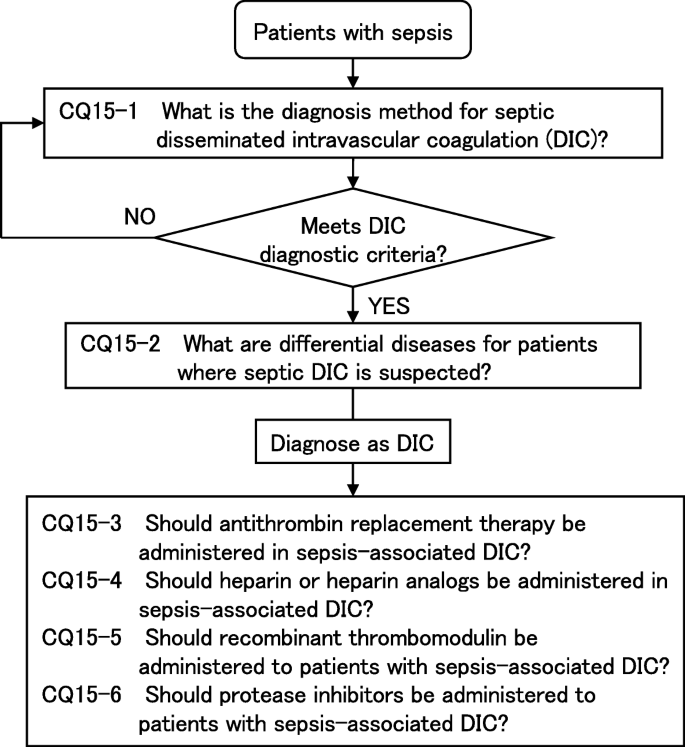 Source: jintensivecare.biomedcentral.com
Source: jintensivecare.biomedcentral.com
You respond to a residence for a patient with a severe leg injury following an accident with a chainsaw. Blood vessel leakage, dilation, and severe volume loss. The result of an inadequate amount of fluid or volume in the circulatory system.
 Source: researchgate.net
Source: researchgate.net
Apply direct pressure to the wound. Widespread vasoconstriction and plasma loss due to a severe viral infection Temporary, widespread vasodilation and syncope caused by a sudden nervous system reaction most accurately describes:
 Source: anesthesiology.theclinics.com
Source: anesthesiology.theclinics.com
Bacterial infection of the nervous system with widespread vasodilation b. Bacterial damage to the vessel wall, leaking blood vessels, and. An infectious agent in the body multiplies very rapidly, overwhelming the body�s natural immune response.

An infectious agent in the body multiplies very rapidly, overwhelming the body�s natural immune response. A) bacterial infection of the nervous system with widespread vasodilation b) widespread vasoconstriction and plasma loss due to a severe viral infection c) bacterial damage to the vessel wall, leaking blood vessels, and vasodilation d) viral infection of the blood vessels, vascular. An infectious agent in the body multiplies very rapidly, overwhelming the body�s natural immune response.
Also Read :





